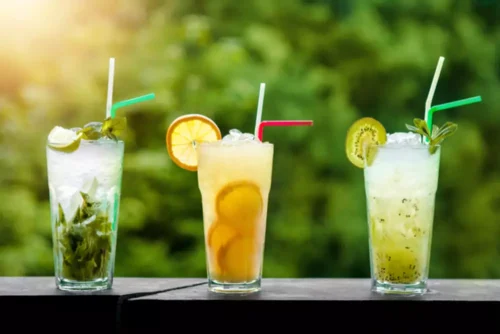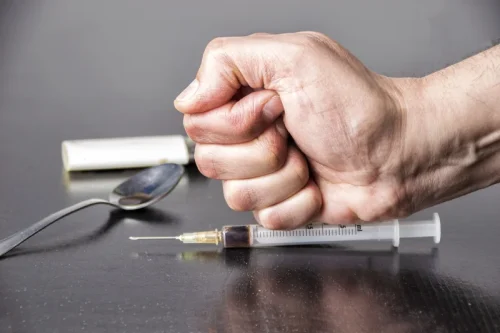
Furthermore, incorporating regular physical activity and cognitive-behavioral strategies can also help manage cravings and promote overall well-being. In addition to this, nutrient deficiencies and blood sugar issues resulting from severe alcohol use disorders can trigger cravings for high-sugar foods like chocolate, candy, or other sweet treats. why do alcoholics crave sugar Consequently, it’s not uncommon for individuals in recovery to have a heightened craving for sugary foods. Balancing sugar intake in recovery is essential for maintaining overall health and supporting long-term sobriety. Here are some strategies to help individuals in recovery find a balance and develop healthier coping mechanisms.
Alcohol, Diabetes, and Blood Glucose Management
- At that time the individual’s mindset can become, “when I was drinking I wasn’t eating all this food.” The alcohol numbed their depression and quieted their negative thoughts about their self-image.
- We’ll give you skills to discover your self-worth and show you the tools for a life of hope and promise.
- The activation of these receptors reinforces the desire for sugar in individuals with a history of alcohol dependence.
- Breaking this habit loop can be useful in overcoming alcohol cravings.
- In the next sections, we will delve into the role of nutritional deficiencies and behavioral patterns in contributing to sugar cravings in recovering alcoholics.
Explore what environmental factors inspire addiction, from cultural influences to urban stress. Dive into defining physiological dependence, its symptoms, management strategies, and the path to recovery. Learn how to redefine your relationship with alcohol, establish healthier habits, and seek effective support. Discover what is Suboxone, its uses in treating opioid addiction, side effects, and how it compares to other treatments. Symptoms of hypoglycemia can often overlap with those of intoxication, making it challenging to differentiate between the two. For individuals with hypoglycemia unawareness, drinking alcohol can be particularly risky.
Science-Backed Strategies to Overcome Alcohol Cravings

As such, a balanced diet is essential in aiding recovery and restoring physical health. Genetics also play a role in the sugar cravings experienced by recovering alcoholics. Some individuals may have a genetic predisposition to prefer sweet tastes. This preference for sweetness can be heightened in individuals with a history of alcoholism, leading to an increased desire for sugar to satisfy their cravings.

Depletion Caused by Alcoholism
Thus, alcoholics may crave sugar due to low levels of dopamine and serotonin in the brain, contributing to sugar cravings in individuals recovering from alcohol addiction [1]. To answer the question, “why do alcoholics crave sugar?”, it’s important to delve into the physiological and biochemical factors at play. This involves understanding the roles of certain brain chemicals, specifically dopamine and serotonin, as well as the impact of alcohol on blood sugar levels.
- They start with the brain and, in the case of a recovering addict, can be a sign of addictive behaviors.
- It’s a sophisticated survival strategy – you scratch the alcohol component, and the brain, not ready to forgo its sugar fix yet, shifts to craving sweets.
- Unravel why people with alcohol use disorders crave sugar and learn coping strategies for recovery.
- It’s also worth noting that high-calorie, high-sugar, low-nutrient foods are frequently consumed in early recovery, which can lead to weight gain, low mood, and potential alcohol relapse triggers.
Potential Health Risks of Excessive Sugar Consumption
Understanding the link between alcohol and sugar consumption is critical in the context of addiction and recovery. It has been observed that individuals in recovery from Alcohol Use Disorder (AUD) often experience increased sugar cravings and consumption. The answer lies in the connection between sugar addiction and alcoholism, and the role of dopamine deficiency in cravings. Alcohol disrupts your body’s ability to manage blood sugar, which can cause reduced blood sugar levels, leading to sugar cravings. Alcoholics crave sugar because their bodies are used to the dopamine spike caused by drinking.
Alcohol can have a significant impact on blood sugar levels, which is another contributing factor to why alcoholics crave sugar. Consuming alcohol can disrupt blood sugar levels, leading to an increased desire for sugar to rebalance these https://ecosoberhouse.com/ levels. This can result in individuals with alcohol use disorder craving sugary foods or drinks [1]. The question “why do recovering alcoholics crave sugar?” is one that has drawn significant attention in the addiction recovery community.
Managing Sugar Cravings in Recovery
Additionally, it has been found that sweet-cope can predict sugar consumption, sweet cravings, and even alcohol cravings at two different time points. This suggests that a predisposition to use sweets to regulate negative affect may be directly implicated in subsequently increased alcohol craving, sweet craving, and sugar consumption. It’s also worth noting that high-calorie, high-sugar, low-nutrient foods are frequently consumed in early recovery, which can lead to weight gain, low mood, and potential alcohol relapse triggers. Additionally, overweight individuals may be more susceptible to alcohol relapse if proper nutrition and physical health are not maintained.

Drug rehab is highly effective in aiding long-term sobriety through personalized care, strong support systems, and therapeutic interventions. Success rates vary, but understanding the factors influencing treatment can enhance the recovery journey. Outpatient drug rehab is a flexible treatment program that allows individuals to overcome substance abuse while maintaining their daily responsibilities and living at home. It offers tailored therapy and support, making it a cost-effective and practical option for those with mild to moderate addiction issues. Alcohol, unlike protein, fat, or carbohydrates, does not require insulin to provide energy to the body. While wine and spirits are low in carbohydrates, sweet dessert wines can contain a significant amount of carbs.
- This is partially because alcohol can damage the pancreas, which controls blood sugar levels, and partially due to poor diet and malnutrition.
- Exploring the curious relationship between sugar cravings and substance use disorders is crucial for understanding why people with alcohol use disorders crave sugar.
- This phenomenon, often referred to as ‘sweet-cope’, involves individuals using sugar to cope with negative affect [3].
- One of the overlooked areas in this process is the role diet plays in recovery.
- “Giving your body six months of water absorption will improve your digestion and constipation,” says Dr. Mosquera.
